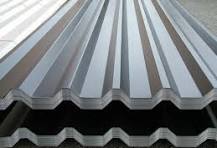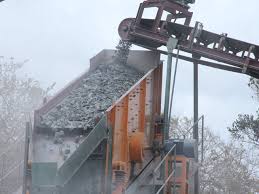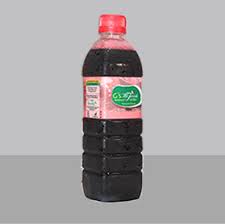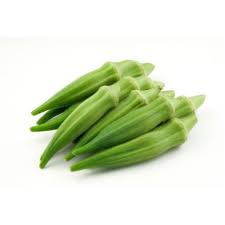Corrugated Aluminium Roofing Sheets Production in Nigeria; The Feasbility Report.

Roof is a vital part in house construction that provides protection from natural elements and climatic conditions. Roofing materials are external layers applied on the roof of a building. These are sometimes self-supporting, but are generally supported by underlying structures. The outer layer of a roof varies depending on the availability of material and the nature of the supporting structure.
Roofing materials range from natural products such as thatches and slates to commercially available products such as bituminous, tiles, and plastic sheeting.
The global roofing materials market size is estimated to be valued at US$ 126.24 Billion in 2022 and is expected to exhibit a compound annual growth rate (CAGR) of three point eight percent (3.8%) between 2023 and 2030. Increasing adoption of sustainable construction projects, which emphasizes on the use of environment-friendly and energy efficient materials, is expected to drive the market over the forecast period (2023 – 2030).
Corrugated aluminium roofing sheets are essential materials in Nigeria’s construction industry, contributing significantly to the building sector. Their durability, lightweight nature, and corrosion resistance make them one of the preferred materials for roofing structures across the country.
Corrugated aluminium roofing sheets are designed to provide enhanced strength through a wavy pattern and are usually coated or treated to withstand the harsh weather conditions common in many parts of Nigeria. Aluminium roofing sheets are favored over steel and zinc-coated materials due to their higher resistance to rust, light weight, and extended lifespan.
In Nigeria, aluminium roofing sheets come in various designs, thicknesses, and finishes that meet the demands of different sectors. Among the most common types of roofing sheets in Nigeria are longspan, metcoppo, and step-tiles.
These variations serve different purposes and are tailored to different market needs, particularly in residential, commercial, and industrial applications.
Longspan aluminium roofing sheets are the most common type of aluminium roofing materials used in Nigeria. As the name suggests, these sheets are designed to cover longer spans, reducing the number of joints required for large roof areas. They are generally straight, with a wavy or trapezoidal profile that provides structural strength.
Metcoppo aluminium roofing sheets are a higher-end alternative, featuring more elaborate designs compared to longspan roofing sheets. Metcoppo sheets are designed to mimic the traditional Spanish tiles or Mediterranean roof tiles, making them more aesthetically pleasing for upscale constructions.
Step-tiles aluminium roofing sheets are another aesthetically pleasing roofing material that combines the durability of aluminium with the beauty of traditional ceramic tiles. The step-tile design features embossed patterns that give the roof a stepped appearance, similar to natural tiles.
Nigeria with her current population estimated at over two hundred million (200,000,000) growing at a rate of three point five percent (3.5%) per annum has a short fall in the supply of housing units that has been estimated to be between sixteen to seventeen million (16,000,000 – 17,000,000), hence aluminium roofing sheet.
The standard organization in Nigeria (SON) regulates the quality of aluminium roofing sheets produced in Nigeria and this report seeks to examine the financial viability or otherwise of establishing a long span, step tiles and metcoppo aluminium roofing sheet production plant in Nigeria.
The capacity of the plant is forty (40) meters per minutes maximum for the long span roll forming machine and seven (7) meters maximum for the step tiles and metcoppo roll forming machine.
The plant would operate at eighty percent (80%) of the installed capacity working single shift of eight (8) hours each per da
A roof is an essential component of any structure, providing protection against natural elements and climatic variations. Roofing materials serve as the outermost layers of a roof, shielding buildings and their occupants while also contributing to the overall aesthetic appeal. These materials vary widely, ranging from traditional thatch and slate to modern, commercially available options like bitumen, tiles, and aluminium sheets.
In Nigeria, aluminium roofing sheets have emerged as one of the most sought-after materials in the construction industry due to their unique blend of durability, aesthetics, and functionality.
Globally, the roofing materials market is a thriving industry. Valued at an estimated US$ 126.24 billion in 2022, the market is projected to grow at a compound annual growth rate (CAGR) of three point eight percent (3.8%) between 2023 and 2030. A significant factor driving this growth is the increasing emphasis on sustainable construction practices that prioritize energy-efficient and environmentally friendly materials. Aluminium roofing sheets, with their recyclability and durability, fit well within this global trend, offering a sustainable solution for modern construction needs.
In Nigeria, aluminium roofing sheets are integral to the construction industry, meeting the country’s housing and infrastructure demands. Their lightweight nature, corrosion resistance, and durability make them a preferred choice for a wide range of applications, including residential, commercial, and industrial buildings.
Key Features and Benefits
Durability: Aluminium roofing sheets have a long lifespan and can withstand Nigeria’s harsh weather conditions, including heavy rainfall and intense heat.
Corrosion Resistance: Unlike steel or zinc-coated alternatives, aluminium resists rust, ensuring a cleaner and longer-lasting roof.
Lightweight: Their light weight simplifies transportation and installation, reducing overall construction costs.
Aesthetic Appeal: Available in various profiles, colors, and finishes, aluminium sheets cater to diverse architectural preferences.
The aluminium roofing sheets market in Nigeria offers a variety of designs and profiles to meet the needs of different sectors. The most popular options include:
Longspan Aluminium Roofing Sheets: These are the most widely used roofing sheets in Nigeria. Longspan sheets are straight with wavy or trapezoidal profiles that enhance structural strength. Their ability to cover large spans reduces the need for frequent joints, making them ideal for expansive roof areas.
Metcoppo Aluminium Roofing Sheets: Designed for upscale constructions, Metcoppo sheets mimic traditional Spanish or Mediterranean roof tiles. They combine aluminium’s durability with an aesthetically pleasing design, making them a popular choice for residential and commercial properties.
Step-Tiles Aluminium Roofing Sheets: These sheets feature embossed patterns that give the roof a stepped, tile-like appearance. They offer the strength of aluminium along with the charm of ceramic tiles, making them suitable for stylish residential and commercial projects.
Nigeria’s population, estimated at over two hundred million (200,000,000) and growing at two point four percent (2.4%) annually, faces a significant housing shortfall. The deficit is currently between sixteen to seventeen million (16,000,000 to 17,000,000) housing units, driving the demand for cost-effective, durable, and aesthetically pleasing construction materials.
Aluminium roofing sheets are uniquely positioned to address this demand. Their versatility, combined with low maintenance costs and long-term durability, makes them a preferred choice for housing and infrastructure projects across the country.
The Standards Organization of Nigeria (SON) oversees the production and quality of aluminium roofing sheets in the country. This regulatory framework ensures that manufacturers adhere to industry standards, producing materials that meet both local and international benchmarks for strength, durability, and environmental safety.
Establishing a production plant for aluminium roofing sheets in Nigeria involves significant financial and operational considerations. The typical production process includes:
Raw Material Sourcing: Aluminium coils are procured locally or imported, depending on availability.
Roll Forming: Coils are shaped into the desired profiles using roll-forming machines.
Coating and Finishing: Sheets are coated to enhance corrosion resistance and aesthetic appeal.
Cutting and Packaging: Finished sheets are cut to size, tested for quality, and packaged for distribution.
The capacity of the proposed plant is forty (40) meters per minute for longspan sheets and seven (7) meters per minute for step-tile and Metcoppo sheets, working at eighty percent (80%) capacity over an eight-hour shift for three hundred (300) days annually.
The aluminium roofing sheets manufacturing in Nigeria is evolving, influenced by global and local trends:
Sustainability: Increased focus on using recyclable and environmentally friendly materials.
Customization: Rising demand for tailored profiles, colors, and finishes to meet specific architectural needs.
Technological Advancements: Improved production technologies for higher efficiency and precision.
Affordable Housing Initiatives: Government programs aimed at reducing the housing deficit are driving demand for aluminium roofing sheets.
The production and use of aluminium roofing sheets in Nigeria are pivotal to addressing the country’s housing challenges and supporting its growing construction industry. By leveraging local resources, adhering to quality standards, and embracing innovation, manufacturers can play a critical role in meeting the increasing demand for sustainable, durable, and aesthetically pleasing roofing solutions.
As the aluminium roofing sheets market in Nigeria continues to grow, the sector holds immense potential for economic development, job creation, and improved living standards for millions of Nigerians.
y in three hundred (300) day per annum.
Table of Contents
EXECUTIVE SUMMARY 1. Business Overview 1.1 Description of the Business 1.2 Vision and Mission Statement 1.3 Business Objective 1.4 Value Proposition 1.5 Critical Success Factor of the Business 1.6 Current Status of Business 1.7 Description of the Business Industry 1.8 Contribution to Local and National Economy 2. Marketing Plan 2.1 Description of the Products 2.2 Location 2.3 The Opportunity 2.4 Pricing Strategy 2.5 Target Market 2.6 Distribution and Delivery Strategy 2.7 Promotional Strategy 2.8 Competition 3. Technical Analysis 3.1 Description of the Location 3.2 Raw Materials 3.3 Production Technology / Equipment 3.4 Production Process 3.5 Production Cost 3.6 Stock Control Process 3.7 Pre-Operating Activities and Expenses 3.7.1 Operating Activities and Expenses 3.8 Project Implementation Schedule 4.0 Organizational and Management Plan 4.1 Ownership of the Business 4.2 Profile of the Promoters 4.3 Key Management Staff 4.3.1 Strategic Business Units 4.3.2 Management Support Units 4.4 Details of Salary Schedule 5. Financial Plan 5.1 Financial Assumption 5.2 Start- up Capital Estimation 5.3 Source of Capital 5.4 Security of Loan 5.5 Loan Repayment Plan 5.6 Financial Projections 6.0 Business Risk and Mitigation Factors 6.1 Business Risks 6.2 SWOT Analysis
Project Specification:
Additional Info
Get this Report
Direct bank transfer
To order the report, Please do pay the sum of ₦150,000 into
Account Name : Foraminifera Market Research Ltd
Account Number : 274 20 569 37
Account Name : Foraminifera Market Research Ltd
Account Number : 101 76 603 95
Account Name : Foraminifera Ventures
Account Number : 011 66 066 32
Make your payment directly into our bank account. Please use your Order ID as the payment reference. Your order will not be shipped until the funds have cleared in our account.
Instructions
After payment call us on 01 -29 52 413 / 08033782777 or email us at foraminiferamarketresearch@yahoo.com with the payment details. After payment confirmation, the soft copy of the report would be sent to you within 24 hours.



